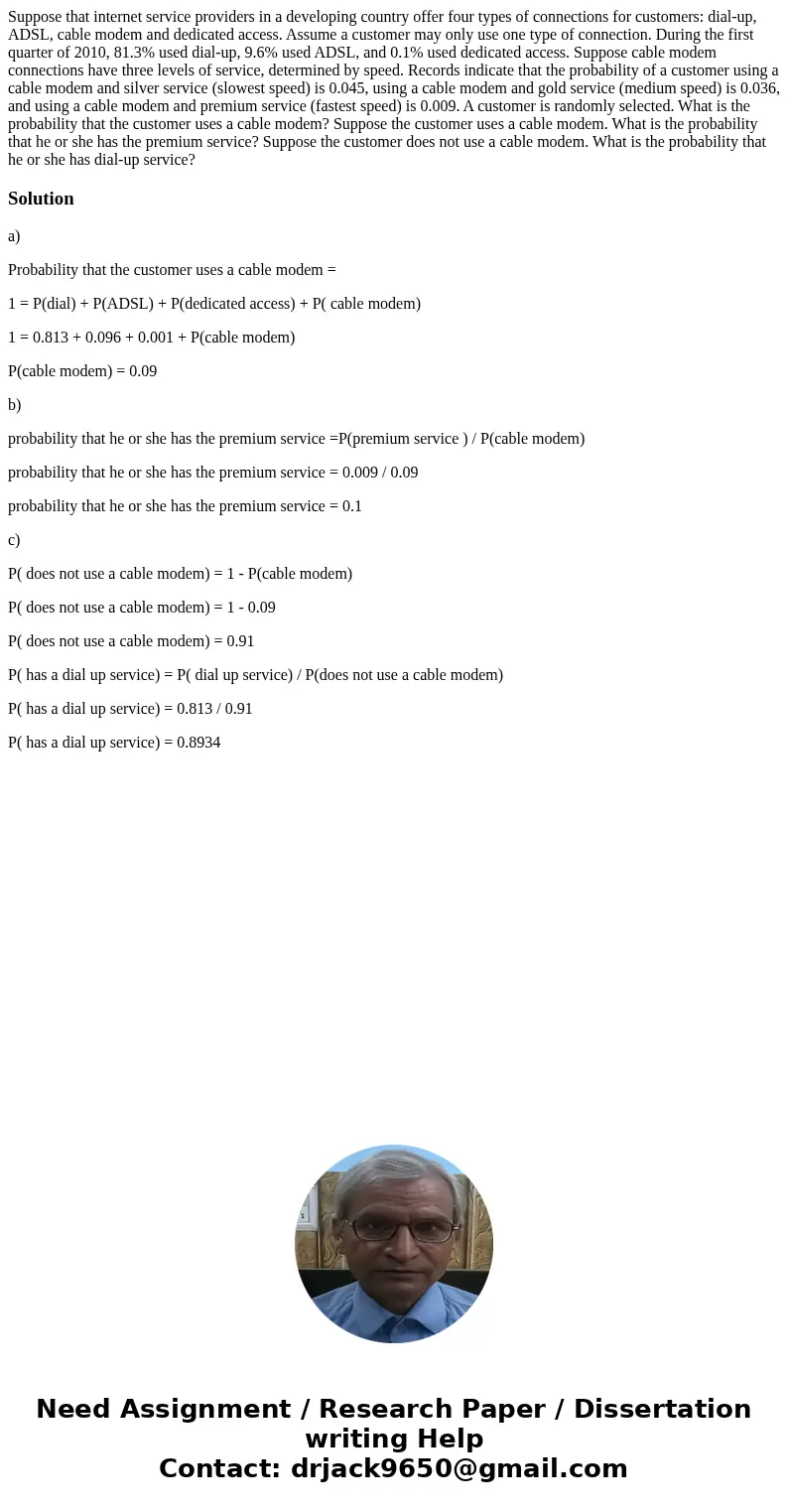Suppose that internet service providers in a developing coun
Suppose that internet service providers in a developing country offer four types of connections for customers: dial-up, ADSL, cable modem and dedicated access. Assume a customer may only use one type of connection. During the first quarter of 2010, 81.3% used dial-up, 9.6% used ADSL, and 0.1% used dedicated access. Suppose cable modem connections have three levels of service, determined by speed. Records indicate that the probability of a customer using a cable modem and silver service (slowest speed) is 0.045, using a cable modem and gold service (medium speed) is 0.036, and using a cable modem and premium service (fastest speed) is 0.009. A customer is randomly selected. What is the probability that the customer uses a cable modem? Suppose the customer uses a cable modem. What is the probability that he or she has the premium service? Suppose the customer does not use a cable modem. What is the probability that he or she has dial-up service? 
Solution
a)
Probability that the customer uses a cable modem =
1 = P(dial) + P(ADSL) + P(dedicated access) + P( cable modem)
1 = 0.813 + 0.096 + 0.001 + P(cable modem)
P(cable modem) = 0.09
b)
probability that he or she has the premium service =P(premium service ) / P(cable modem)
probability that he or she has the premium service = 0.009 / 0.09
probability that he or she has the premium service = 0.1
c)
P( does not use a cable modem) = 1 - P(cable modem)
P( does not use a cable modem) = 1 - 0.09
P( does not use a cable modem) = 0.91
P( has a dial up service) = P( dial up service) / P(does not use a cable modem)
P( has a dial up service) = 0.813 / 0.91
P( has a dial up service) = 0.8934

 Homework Sourse
Homework Sourse